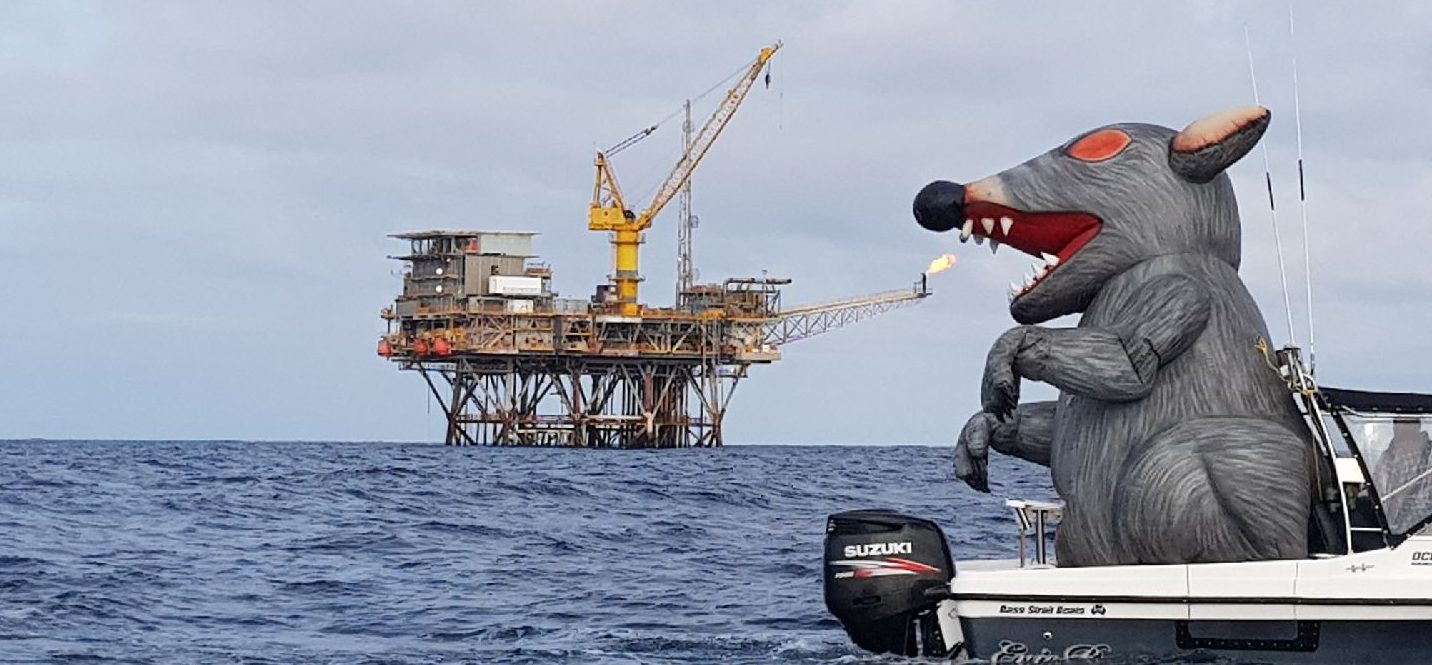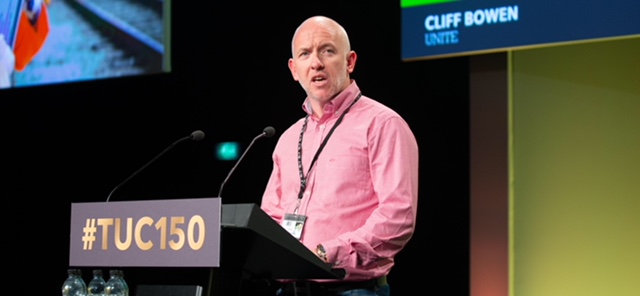Bleak future?
On the eve of the government’s Autumn Statement on Wednesday (November 23), Unite has revealed the necessity of immediate state intervention following a survey of the offshore workforce which found the vast majority of oil and gas workers foreseeing a bleak future for their industry.
Nearly nine in 10 of the 779 surveyed backed Unite’s call for government support of the industry — more than half said they saw no future for oil and gas in the UK unless the state took steps to help.
Worryingly, almost one in four surveyed had a much more pessimistic outlook — reporting that they saw no future in the sector at all.
Those who took part in the survey almost unanimously agreed that both the Scottish and UK governments were not doing enough to support the beleaguered offshore sector, which has been in crisis over the last year after the price of oil plummeted.
It is estimated that by the end of the year, job losses could total an astonishing 120,000.
The oil and gas workers surveyed by Unite are well attuned to the ups and downs of the industry — some 60 per cent of workers in the survey have been in the industry for more than 10 years, and 35 per cent for over 20 years.
Unite Scottish secretary Pat Rafferty pointed to these numbers as proof that the government should take heed.
“These are workers who have seen the peaks and troughs of the industry over the years,” he said. “When experienced people like that say they fear for the future, we should all listen.”
Industrial strategy?Â
Prime minister Theresa May’s speech to the Confederation of British Industry (CBI) this morning (November 21) dashed hopes that she was serious about formulating an industrial strategy that understood the importance of long-term investment in sectors vitally important to the UK economy — of which oil and gas is an integral part.
She has again refused to outline what, specifically, her industrial strategy would entail, saying only that it was “not about propping up failing industries or picking winners, but creating the conditions where winners can emerge and grow”.
Her U-turn on having worker representatives on company boards in her speech this morning was another indication that workers’ views would not be taken seriously.
Rafferty argued that the message from members in the offshore survey was clear.
“Unless government starts to come up with some new thinking for the oil and gas industry, the future is looking very bleak,” he said.
“We have made repeated calls for a summit to bring together energy companies, trade unions, the Scottish government and the UK government, so that we can start planning for the future. It’s never happened, and we just can’t understand why.
“We have repeatedly called on the Scottish government and the UK government to consider using their borrowing powers to take out public stakes in new offshore infrastructure, and to help protect existing infrastructure that might otherwise be decommissioned,” Rafferty added.
“We believe public stakes would encourage companies to also invest, supporting jobs, and creating returns for the public purse in the future.
“We are in the middle of a crisis, and unless there is action soon we could be approaching a point of no return. That would be devastating for the Scottish economy, particularly in the north east,” he noted.
“Offshore workers are the people worst affected by this crisis – with attacks on their working conditions and as many as 120,000 jobs in the industry and wider economy forecast to be lost by the end of this year.
“Our members are clear – to protect their livelihoods and skills we need government action now.”
Earlier this month, North East Scotland Labour MSP Lewis Macdonald put down aScottish Parliament motion calling on the Scottish Government to facilitate discussions with the UK Government, industry and trade unions to create a plan for co-investment in the offshore industry. The motion has now obtained cross-party support.
Commenting on the motion, Macdonald said Scottish Labour has called for the “creation of a new public body, UK Offshore Investment Limited (UK OIL), to identify areas for temporary public investment.
“UK OIL would work with the Oil and Gas Authority to identify strategic assets that are potentially profitable,” he noted. “That would help to prevent platforms and pipelines being lost earlier than planned, and potentially help fund new ones for the future.
“We urgently need imaginative thinking like this now – otherwise the oil and gas sector could continue to decline due to lack of investment.”
Scottish Labour’s Westminster spokesman Ian Murray agreed, noting today that strategic assets must be protected by public investment.
“Once these assets are gone they are gone for good, with all the benefits they bring to Scotland’s economy,” he said.
“We have to do all we can to stop that happening and then review investment once the oil price rises again.”
Unite said that research published last month by the Oil & Gas Authority shows potential for a new lease of life for the industry, with an estimated equivalent of 3bn barrels of oil in untapped small pools around the shores of Scotland.
Unite’s survey also found that 83 per cent of workers had seen a reduction in skilled personnel, which has created issues around productivity and the ability to perform work tasks.
“This is an incredibly worrying finding,” Rafferty argued. “Energy companies have to realise that they can’t prop up their profits – or create a sustainable industry – by slashing the jobs of the skilled workers who are the bedrock of their success.
“Energy companies need to work with their staff to build for the future. We cannot simply have a race to the bottom.”
Find out more about how you can support the oil and gas workforce here.
 Like
Like Follow
Follow


